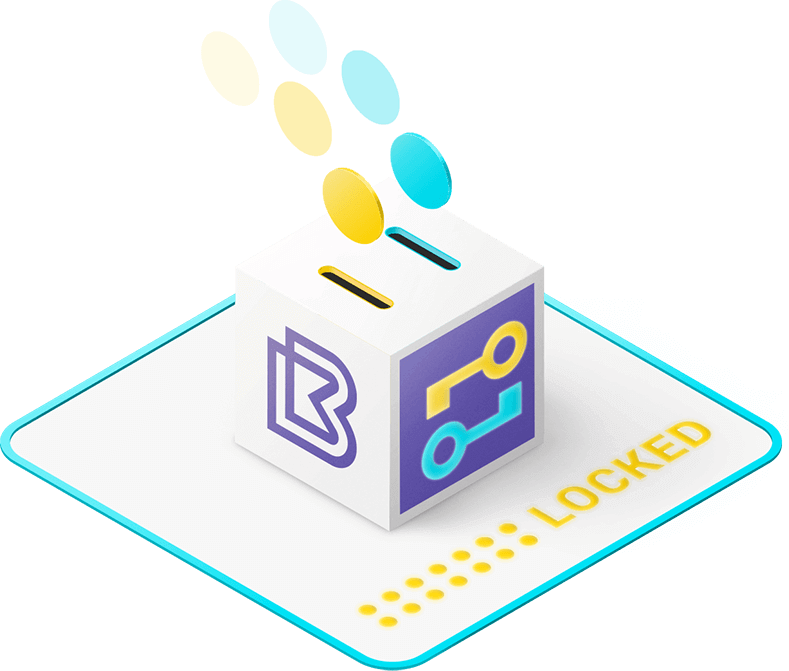Latest news about Bitcoin and all cryptocurrencies. Your daily crypto news habit.
BitBay is a free, decentralized marketplace for buying and selling goods and services on the blockchain. You can connect directly with peers and transact without the need for a middleman like Amazon, eBay, or Craigslist. Transactions are secure and anonymous. They’re also guaranteed by escrow.
The project aims to be the new standard for eCommerce, allowing individuals to trade one-to-one at scale. As a result, BitBay claims it will revolutionize global trade. It’s seemingly a great solution for other niche applications as well, where groups of people aren’t served by existing marketplaces.
In the beginning, BitBay got off to a rocky start. In 2014, the original founders raised capital in bad faith and quickly abandoned the project after fundraising, leaving the lead developer holding the bag. It seemed like BitBay was finished, but the developer continued working on the project out of a sense of duty to the original investors, without access to the capital raised in the fundraising round.
Since those early, uncertain days, development has come a long way. The platform officially launched in 2015 and has seen active updates over the past several years. Users have successfully transacted across industries, including one user who sold five acres of land on BitBay.
eBay on the Blockchain
BitBay’s name is a portmanteau of Bitcoin and eBay. In a sense, that’s a useful way to think about what the platform does. It’s a marketplace for users to list items for sale and negotiate prices. Those prices are denominated in BAY, the platform’s cryptocurrency.
When you reach an agreement, you set up a smart contract that ensures the delivery of the appointed item using escrow. This creates trustless transactions between parties. The more you transact, the more you’ll gain reputation points and the more willing future sellers/buyers will be to transact with you.
Centralized marketplaces (like eBay or Amazon) sometimes limit the number of items a seller can list. Or, they’ll require the use of particular payment platforms that take a percentage of transactions. Additionally, they’re restricted geographically, limiting the number and type of potential buyers for the item. Finally, centralized marketplaces store customer data in centralized servers that can be compromised.
BitBay guarantees unrestricted access to its platform. List as many items as you want, without geographic restriction. Transactions in BAY tokens are fee-free. In fact, there are no fees at all to use the platform.
Double Deposit Escrow
Double Deposit Escrow is BitBay’s way of ensuring that items ship and disputes get resolved in a decentralized way. On a typical centralized platform, like eBay, the platform gets involved in resolving disputes. Usually, they always side with the buyer. This can end up unfair for the seller. More importantly, it adds a lot of overhead to the cost of operating the marketplace if you need to resolve disputes.
BitBay addresses this by making sure all parties have a stake in the success of the transaction. Before the transaction, both parties deposit an escrow amount as collateral against the transaction. If the product arrives in good condition and the buyer has paid in full, both parties signal a successful transaction and the double escrow is released back to the parties.
In the event of a dispute, the double escrow won’t release until both parties are satisfied. This forces the parties to negotiate a reasonable resolution to their dispute in order to get the escrow back. Scammers and other bad actors can’t profit under such a system, because their escrow won’t be returned to them.
In addition, BitBay’s reputation system helps buyers and sellers know how much to trust the other party. Users with low reputation or no transaction history might need to put up more funds in escrow prior to making transactions. Meanwhile, users with high reputation will be able to put up less funds in escrow for their transactions.
Dynamic Price Pegging
One of the key aspects of BitBay as a marketplace is its token is dynamically pegged. This means the money supply fluctuates in such a way that the value of BAY stays relatively flat. As opposed to the wild price swings we see in other cryptocurrencies, BAY will maintain a fairly even, but dynamic value. This makes it more attractive for use as a currency to buy physical goods. You know that when you buy BAY, it won’t immediately drop in value, and you can be confident it will be worth something in the future.
The pegs freeze and release coins at certain values, mitigating market volatility and encouraging a consistent, usable marketplace.
Privacy & Multisignature
BitBay supports all kinds of privacy and security measures. It’s easy to create a multisignature wallet for added security. There are integrations for Tor and other proxies that help anonymize your connection to the marketplace. An on-screen keyboard allows for password or key entry without using your keyboard and being susceptible to keylogging. Additionally, you can create images with your private key embedded, so that finding a stored key is more difficult for a hacker.
Timelocks & Atomic Swaps
The marketplace also has functionality for time locking contracts and swapping currencies. This enables all kinds of cross-chain transactions and financial implements. The time lock and other smart contract elements make it possible to create bets, escrow, futures and options trades, or any number of other financial transactions.
Team & Controversy
BitBay got off to a bad start. The original founders misled investors and never intended to build the platform. They brought on David Zimbeck as a technical lead to give the project legitimacy. When they disappeared shortly after the fundraising rounds, along with the capital they raised, David was left with no funding and a lot of angry investors.
It would have been easy for David to fold at that point and give up on the project, but he didn’t. For the first few years of BitBay, he was the only developer on the project. He didn’t have the money to hire other developers, and volunteer developers helped out occasionally.
Looking back on the experience, David had this to say:
“The theft and mistrust that happened with the founders in the beginning affected me emotionally, and to this day I still have problems believing people can do that kind of thing to other people purposefully and without any misgivings. I was just not raised that way. It was a real life lesson, and took me a long time to get over. …
For a long time this betrayal affected my work and personal life, but I have moved on and am more determined than ever to complete the project. BitBay will rise from the ashes like a phoenix. There is nothing they can do to prevent BitBay’s success.”
BitBay now has five members on its core team with developers, designers, and marketers contributing as well.
BAY Token
The BAY token is the transactional token in the marketplace. You use it to buy and sell, and it can also participate in freezes, escrow, bets, swaps, etc. The token itself operates like Bitcoin and is secured by the network.
BAY’s price cratered after the original founders left and stayed low until March 2017 when it took off. It has been through several cycles of bull and bear runs, with a max price over 30 cents in January 2018 before retreating to its current value.
Where to Buy BitBay (BAY)
Upbit and Bittrex do 98% of the trading volume for BAY tokens, so you’ll want to use one of those two exchanges to get BAY.
To do so, you’ll need to buy BTC, since these exchanges don’t take fiat.
How to Store BitBay (BAY)
BitBay has an online wallet that makes creating addresses and sending transactions easy. To participate in the full marketplace, however, you’ll need to download the marketplace client. There are other GUI wallets for holding BAY, as well. You can find all of these on the downloads page of their website.
Conclusion
David Zimbeck has shown tenacity and dedication to this project over the past four years. The fact that it has successfully coordinated many transactions is cause for hope and excitement. There’s a lot more to come in the project’s development roadmap, and now that there is a dedicated team, expect to see the marketplace grow and evolve over the coming year.
The post What is BitBay (BAY)? | Beginner’s Guide appeared first on CoinCentral.
Disclaimer
The views and opinions expressed in this article are solely those of the authors and do not reflect the views of Bitcoin Insider. Every investment and trading move involves risk - this is especially true for cryptocurrencies given their volatility. We strongly advise our readers to conduct their own research when making a decision.



